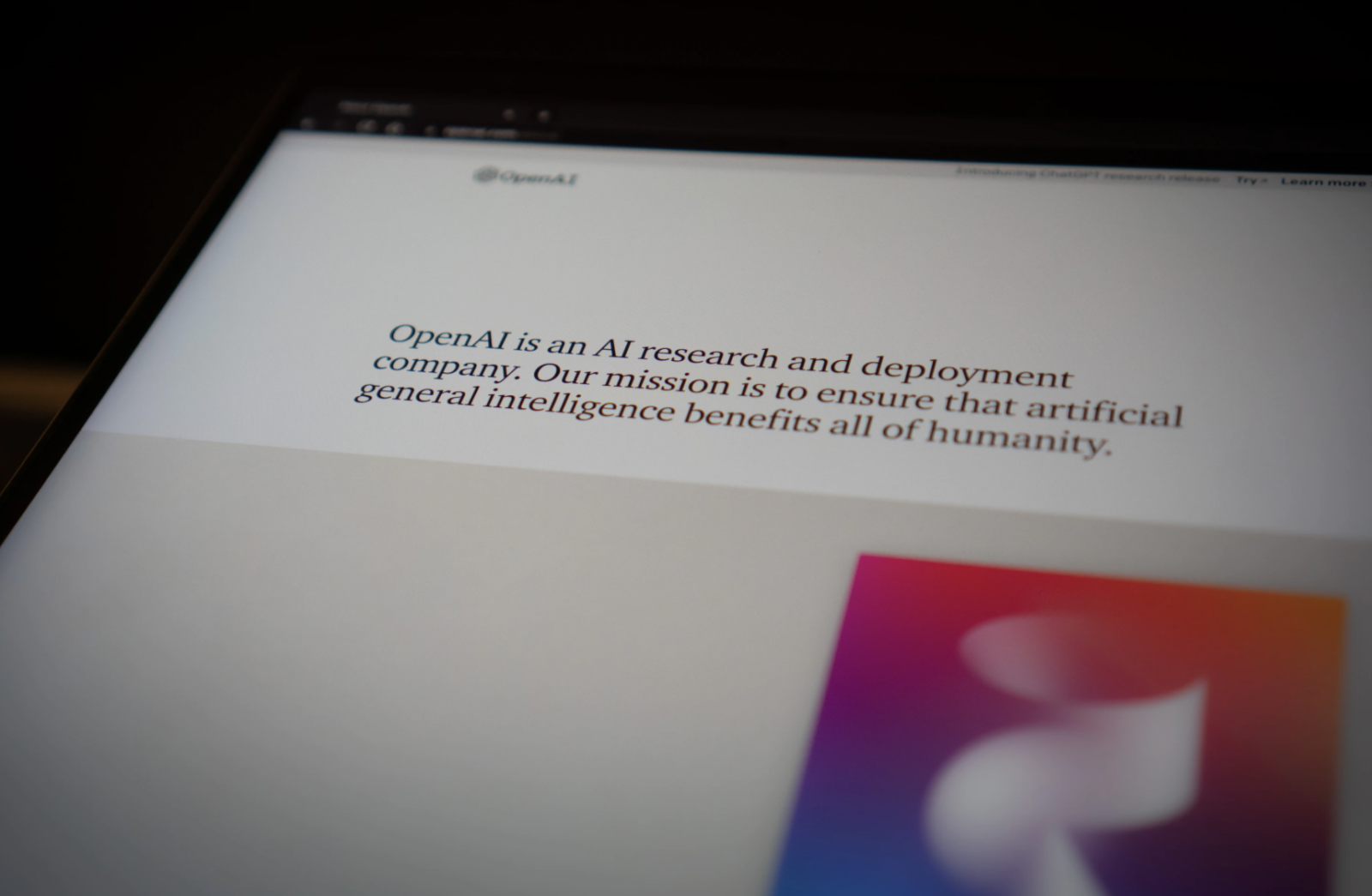The rapid rise in interest in – and adoption of – artificial intelligence (“AI”) technology, including generative AI, has resulted in global demands for regulation and corresponding legislation. Microsoft, for one, has pushed for the development of “new law and regulations for highly capable AI foundation models” and the creation of a new agency in the United States to implement those new rules, as well as the establishment of licensing requirements in order for entities to operate the most powerful AI models. At the same time, Sam Altman, the CEO of ChatGPT-developer OpenAI, had called for “the creation of an agency that issues licenses for the development of large-scale A.I. models, safety regulations, and tests that A.I. models must pass before being released to the public,” among other things.
The United States has “trailed the globe on regulations in privacy, speech, and protections for children,” the New York Times reported recently in connection with calls for AI regulation. The paper’s Cecilia Kang noted that the U.S. is “also behind on A.I. regulations” given that “lawmakers in the European Union are set to introduce rules for the technology later this year” in the form of the Regulation on Artificial Intelligence (better known as the “AI Act”). Meanwhile, China currently has “the most comprehensive suite of AI regulations in the world, including its newly released draft measures for managing generative AI.”
What the U.S. has done to date is release non-binding guidance in the form of the AI Risk Management, the second draft of which was released by the National Institute of Standards and Technology in August 2022. Intended for voluntary use, the AI Risk Management Framework aims to enable companies to “address risks in the design, development, use, and evaluation of AI products, services, and systems” in light of the “rapidly evolving” AI research and development standards landscape.
Shortly thereafter, in October 2022, the White House Office of Science and Technology Policy published the Blueprint for the Development, Use and Deployment of Automated Systems at the center of which are five principles that intended to minimize potential harm from AI systems. (Those five principles are: safe and effective systems; algorithmic discrimination protection; data privacy; notice and explanation; and human alternatives, consideration, and fallback.)
Despite such lags in regulation, a growing number of new AI-focused bills coming from lawmakers at the federal level are worth keeping an eye on. With that in mind, here is a running list of key domestic legislation that industry occupants should be aware of – and we will continue to track developments for each and update accordingly …
Sept. 12 – Protect Elections from Deceptive AI Act
Bill: Protect Elections from Deceptive AI Act (S.2770)
Introduced: Sept. 12, 2023
Introduced by/Sponsors: Sens. Amy Klobuchar (D-MN), Chris Coons (D-Del.), Josh Hawley (R-Mo.), and Susan Collins (R-Maine)
Snapshot: The bill would amend the Federal Election Campaign Act of 1971 to prohibit the distribution of deceptive AI-generated audio, images, or video relating to federal candidates in political ads or certain issue ads. The bill would allow federal candidates targeted by materially deceptive content to have that content taken down and enables them to seek damages in federal court.
What the sponsors are saying: “American democracy faces novel threats from deceptive content generated by artificial intelligence, and we must take action to defend our system of free and fair elections,” said Senator Coons. “Right now, we’re seeing AI used as a tool to influence our democracy. We need rules of the road in place to stop the use of fraudulent AI-generated content in campaign ads. Voters deserve nothing less than full transparency,” said Sen. Klobuchar. “This commonsense, bipartisan legislation would update our laws to prohibit these deceptive ads from being used to mislead voters no matter what party they belong to.”
Status: Sept. 12 – Read twice and referred to the Committee on Rules and Administration.
Sept. 12 – Advisory for AI-Generated Content Act
Bill: Advisory for AI-Generated Content Act (S.2765)
Introduced: Sept. 12, 2023
Introduced by/Sponsors: Sen. Pete Ricketts (R-NE)
Snapshot: The bill would make it unlawful for an AI-generating entity to create covered AI-generated material unless such material includes a watermark that meets the standards established by the FTC.
What the sponsors are saying:
Status: Sept. 12 – Read twice and referred to the Committee on Commerce, Science, and Transportation.
Jul. 28 – Experiment with Artificial Intelligence Act of 2023
Bill: Creating Resources for Every American To Experiment with Artificial Intelligence Act of 2023 (H.R.5077)
Introduced: Jul. 28, 2023
Sponsors: Reps. Anna Eshoo (D-CA-16), Michael McCaul (TX-10), Don Beyer (VA-08), and Jay Obernolte (CA-23)
Snapshot: The CREATE AI Act establishes the National Artificial Intelligence Research Resource (NAIRR) as a shared national research infrastructure that provides AI researchers and students from diverse backgrounds with greater access to the complex resources, data, and tools needed to develop safe and trustworthy artificial intelligence.
What the sponsors are saying: “AI offers incredible possibilities for our country, but access to the high-powered computational tools needed to conduct AI research is limited to only a few large technology companies. By establishing the National Artificial Intelligence Research Resource (NAIRR), my bipartisan CREATE AI Act provides researchers from universities, nonprofits, and government with the powerful tools necessary to develop cutting-edge AI systems that are safe, ethical, transparent, and inclusive. Diversifying and expanding access to AI systems is crucial to maintain American leadership in frontier AI that will bolster our national security, enhance our economic competitiveness, and spur groundbreaking scientific research that benefits the public good,” said Rep. Eshoo.
Status: Jul. 28 – Referred to the House Committee on Science, Space, and Technology.
Jul. 27 – Digital Consumer Protection Commission Act of 2023
Bill: Digital Consumer Protection Commission Act of 2023 (S.2597)
Introduced: Jul. 27, 2023
Sponsors: Sens. Elizabeth Warren (D-MA) and Lindsey Graham (R-SC)
Snapshot: The Bill would would rein in Big Tech by establishing a new commission to regulate online platforms. The commission would have concurrent jurisdiction with FTC and DOJ, and would be responsible for overseeing and enforcing the new statutory provisions in the bill and implementing rules to promote competition, protect privacy, protect consumers, and strengthen our national security.
What the sponsors are saying: “The digital revolution provided new opportunities for promoting social interaction, starting businesses, and democratizing information. But digital advancement has a dark side. Today, a tiny number of Big Tech companies generate most of the world’s Internet traffic and effectively regulate Americans’ digital lives. Big Tech companies have far too much power — over our economy, our society, and our democracy. Tech monopolies suppress competition by buying up rivals, preferencing their own products, and charging hefty commissions to other businesses. To get ever more users and data, social media companies manipulate users to drive them to addiction. They target kids with content on self-harm, eating disorders, and bullying. And they leave consumers in the dark about how their data is collected or used, and fall prey to massive data leaks that leave us vulnerable to criminal activity, foreign interference, and disinformation,” Warren and Graham said in a joint statement.
Status: Jul. 27 – Read twice and referred to the Committee on the Judiciary.
Jul. 27 – AI Labeling Act of 2023
Bill: AI Labeling Act of 2023 (S.2691)
Introduced: Jul. 27, 2023
Sponsors: Sens. Brian Schatz (D-HI) and John Kennedy (R-LA)
Snapshot: The Bill would require generative artificial intelligence (AI) systems to include a clear and conspicuous disclosure that identifies the content as AI-generated content and that is permanent or unable to be easily removed by subsequent users. The Bill also outlines obligations for developers and third-party licensees to implement procedures to prevent downstream use of AI systems without the required disclosure.
Status: Jul. 27 – Read twice and referred to the Committee on Commerce, Science, and Transportation.
Jul. 27 – CREATE AI Act of 2023
Bill: CREATE AI Act of 2023 (S.2714)
Introduced: Jul. 27, 2023
Sponsors: Sens. Martin Heinrich (D-NM), Todd Young (R-IN), Sen. Cory Booker (D-NJ), and Mike Rounds (R-SD)
Snapshot: The bill would establish the National Artificial Intelligence Research Resource as a shared national research infrastructure that provides AI researchers and students from diverse backgrounds with greater access to the complex resources, data, and tools needed to develop safe and trustworthy artificial intelligence.
What the sponsors are saying: “We know that AI will be enormously consequential. If we develop and deploy this technology responsibly, it can help us augment our human creativity and make major scientific advances, while also preparing American workers for the jobs of the future. If we don’t, it could threaten our national security, intellectual property, and civil rights,” said Sen. Heinrich. “The bipartisan CREATE AI Act will help us weigh these challenges and unleash American innovation by making the tools to conduct important research on this cutting-edge technology available to the best and brightest minds in our country. It will also help us prepare the future AI workforce, not just for Silicon Valley companies, but for the many industry sectors that will be transformed by AI. By truly democratizing and expanding access to AI systems, we can maintain our nation’s competitive lead while ensuring these rapid advancements are a benefit to our society and country — not a threat.”
Status: Jul. 27 – Read twice and referred to the Committee on Commerce, Science, and Transportation.
Jun. 20 – National AI Commission Act
Bill: National AI Commission Act (H.R.4223)
Introduced: Jun. 20, 2023
Introduced by/Sponsors: Rep. Ted Lieu (D-CA), Rep. Ken Buck (R-CO, and Rep. Anna Eshoo (D-CA)
Snapshot: The legislation would create a national commission to focus on the question of regulating Artificial Intelligence (AI). The bipartisan, blue-ribbon commission will review the United States’ current approach to AI regulation, make recommendations on any new office or governmental structure that may be necessary, and develop a risk-based framework for AI. The group will be comprised of experts from civil society, government, industry and labor, and those with technical expertise coming together to develop a comprehensive framework for AI regulation. Senator Brian Schatz (D-HI) will be introducing companion legislation in the Senate.
What the sponsors are saying: “Artificial Intelligence is doing amazing things for our society. It can also cause significant harm if left unchecked and unregulated. Congress must not stay on the sidelines,” said Rep. Lieu. “However, we must also be humble and acknowledge that there is much we as Members of Congress don’t know about AI. That’s why our bill brings together experts in civil society, government, industry, labor and more to make recommendations on the best ways to move forward on AI regulation. Our bill forges a path toward responsible AI regulation that promotes technological progress while keeping Americans safe.”
“Artificial Intelligence holds tremendous opportunity for individuals and our economy,” said Rep. Buck. “It’s also possible that AI poses a great risk for our national security.” I’m proud to lead this bipartisan piece of legislation with Rep. Lieu to ensure that Congress considers expert opinions before the government takes action in this emerging field.”
“As Co-Chair of the bipartisan Congressional Artificial Intelligence Caucus, I understand how complex the issue of artificial intelligence is. The National AI Commission Act is an important first step to bring together stakeholders and experts to better understand how we can regulate AI and what guardrails must be in place as AI become more prevalent across society,” said Rep. Eshoo.
Status: Jun. 20 – Referred to the House Committee on Science, Space, and Technology.
Jun. 14 – A Bill to Waive Immunity Under S. 230 for Generative AI
Bill: A bill to waive immunity under S. 230 of the Communications Act for claims and charges related to generative AI (S.1993)
Introduced: Jun. 14, 2023
Introduced by/Sponsors: Sen. Josh Hawley (R-MO) and Richard Blumenthal (D-Con.)
Snapshot; The legislation would amend Section 230 by adding a clause that strips immunity from AI companies in civil claims or criminal prosecutions involving the use or provision of generative AI.
What the sponsors are saying: We can’t make the same mistakes with generative AI as we did with Big Tech on Section 230,” said Hawley. “When these new technologies harm innocent people, the companies must be held accountable. Victims deserve their day in court and this bipartisan proposal will make that a reality.”
“AI companies should be forced to take responsibility for business decisions as they’re developing products—without any Section 230 legal shield,” said Senator Blumenthal. “This legislation is the first step in our effort to write the rules of AI and establish safeguards as we enter this new era. AI platform accountability is a key principle of a framework for regulation that targets risk and protects the public.”
Status: Jun. 14 – Read twice and referred to the Committee on Commerce, Science, and Transportation.
Jun. 8 – Global Technology Leadership Act
Bill: Global Technology Leadership Act (S.1873)
Introduced: June 8, 2023
Introduced by/Sponsors: Sens. Michael Bennet (D-Colo.), Todd Young (R-Ind.), and Mark Warner (D-Va.)
Snapshot: The legislation would establish an Office of Global Competition Analysis to assess how the United States fares in key emerging technologies – such as artificial intelligence (AI) – relative to other countries to inform U.S. policy and strengthen American competitiveness.
What the sponsors are saying: “We cannot afford to lose our competitive edge in strategic technologies like semiconductors, quantum computing, and artificial intelligence to competitors like China,” said Sen. Bennet. “To defend our economic and national security and protect U.S. leadership in critical emerging technologies, we need to be able to take into account both classified and commercial information to fully assess where we stand. With that information, Congress can make smart decisions about where to invest and how to strengthen our competitiveness.”
“This legislation will better synchronize our national security community to ensure America wins the technological race against the Chinese Communist Party. There is no single federal agency evaluating American leadership in critical technologies like artificial intelligence and quantum computing, despite their significance to our national security and economic prosperity. Our bill will help fill this gap,” said Sen. Young.
“Over the last few years, the U.S. has made significant investments in key sectors like semiconductor manufacturing. But as the U.S. works to out-innovate our global competitors, it’s crucial that we have a meaningful way to track how our progress stacks up against near-peers like China. I’m proud to join this bipartisan effort to create a centralized hub that’s responsible for keeping tabs on these developments, which are critical to our economic and national security,” said Sen. Warner.
Status: Jun. 8 – Read twice and referred to the Committee on Commerce, Science, and Transportation.
This is a short excerpt from a tracker that is published exclusively for TFL Enterprise subscribers. For access to our up-to-date legislation tracker, inquire today about how to sign up for an Enterprise subscription.





